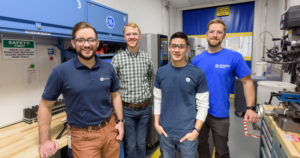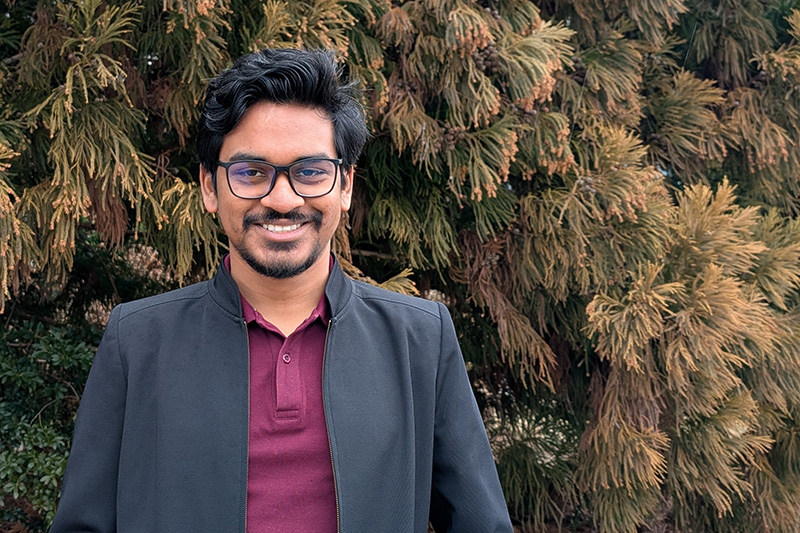Tawsif Sultan Raaz, a master’s candidate in civil engineering at the University of Delaware College of Engineering, has been named the 2025 Robert P. Stearns/SCS Engineers Scholar. Established in honor of environmental engineer Robert P. Stearns and the company he co-founded, the scholarship is awarded by the Environmental Research & Education Foundation (EREF) to a graduate student working in solid waste and sustainable materials management.
Raaz is one of just seven master’s students selected as EREF scholars this year. His research focuses on how emissions of the greenhouse gas methane from landfills change over the course of the day, with the goal of improving landfill management practices. Before beginning his master’s studies at UD in 2024, Raaz earned a bachelor’s degree in civil engineering from Bangladesh University of Engineering and Technology and served as a lecturer at Stamford University Bangladesh.
“Coming from across the world to pursue my master’s at UD has been both exciting and challenging, and at times the road seemed bumpy. The UD community and my faculty mentors have played a huge role in helping me settle here, guiding me through each step of the process and making me feel at home,” said Raaz. “This EREF scholarship reminds me that the hard work, perseverance and sacrifices are worth it. The award is more than financial support—it feels like a vote of confidence in me and my journey.”
Raaz’s research, supervised by professor Paul Imhoff in the Department of Civil, Construction and Environmental Engineering, uses a continuous monitoring method called eddy covariance systems to gather data about methane emissions from U.S. municipal solid waste landfills. Landfills are a major source of methane, which is more than 28 times as effective as carbon dioxide at trapping heat in the atmosphere. Current methods for measuring methane emissions, such as satellite observations, drones and ground-based sampling, typically capture data for only a few hours at a time, which can miss daily patterns and lead to potential overestimates of emissions.
By tracking how methane emissions shift throughout the day, Raaz can assess the impacts of different weather conditions, soil covers, gas collection systems and other factors. Identifying when and where emissions peak promises to inform sustainable waste management practices and help reduce the climate impacts of methane.
“The EREF scholarship gives me the freedom to focus fully on my growth, not only as a researcher but as someone who envisions helping communities manage waste more sustainably and build a greener, more resilient future,” said Raaz. “To me, this award is not just an honor; it is a powerful step in making that dream a reality.”



